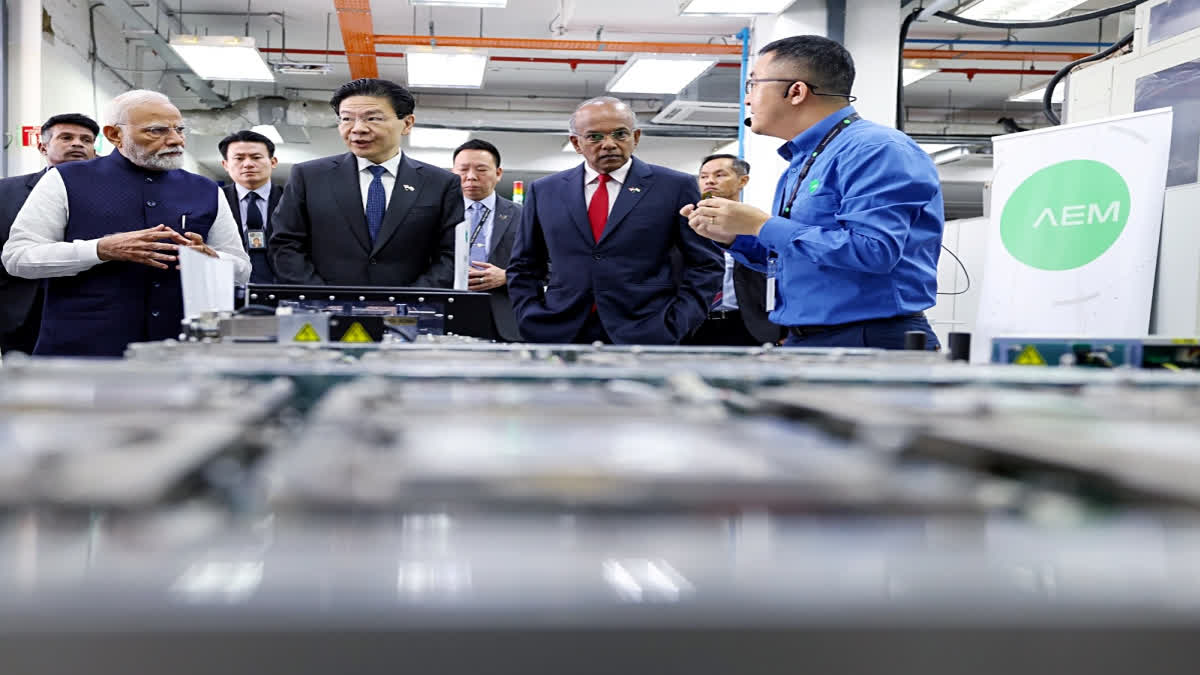Amid conflicts and disturbances in Bangladesh and Myanmar crucial to the implementation of India's Act East Policy, and tensions in the South China Sea where frequent clashes between Chinese and Philippine vessels, Prime Minster Narendra Modi's bilateral visit to Brunei and Singapore from September 3 to 5, 2024 is crucial for India.
This visit underscores the strategic importance of the AEP in the broader Indo-Pacific region as a diplomatic initiative to promote economic and strategic relations with Brunei and Singapore in the Indo-Pacific region by shaping and amplifying mutual cooperation and support in sectors like defence, energy, trade and investment.
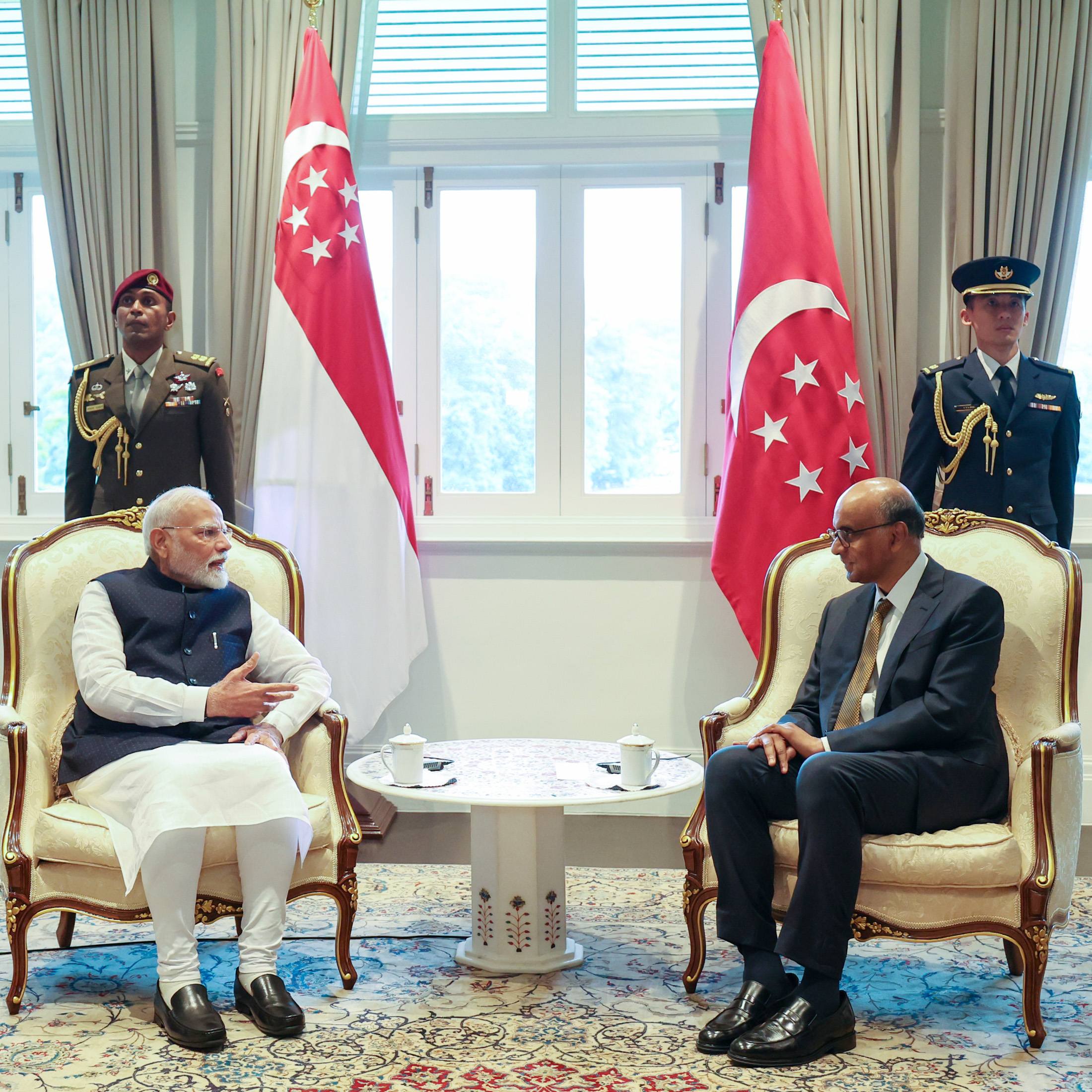
Take Aways from Brunei Visit
India and Brunei on Wednesday elevated the bilateral ties to enhanced partnership as Prime Minister Narendra Modi held talks with Sultan Haji Hassanal Bolkiah and reaffirmed their commitment to further strengthen partnership in all areas of mutual interest including defence, space, long-term supply of LNG and trade. Both leaders agreed to establish a Joint Working Group to facilitate defence cooperation to work together in security matters, mainly in the context of regional stability and maritime security.
India and Brunei decided to promote the region's maritime safety and security, freedom of navigation and overflight, unobstructed lawful trade, consistent with international law particularly the United Nations Convention on the Law of the Sea 1982 (UNCLOS).
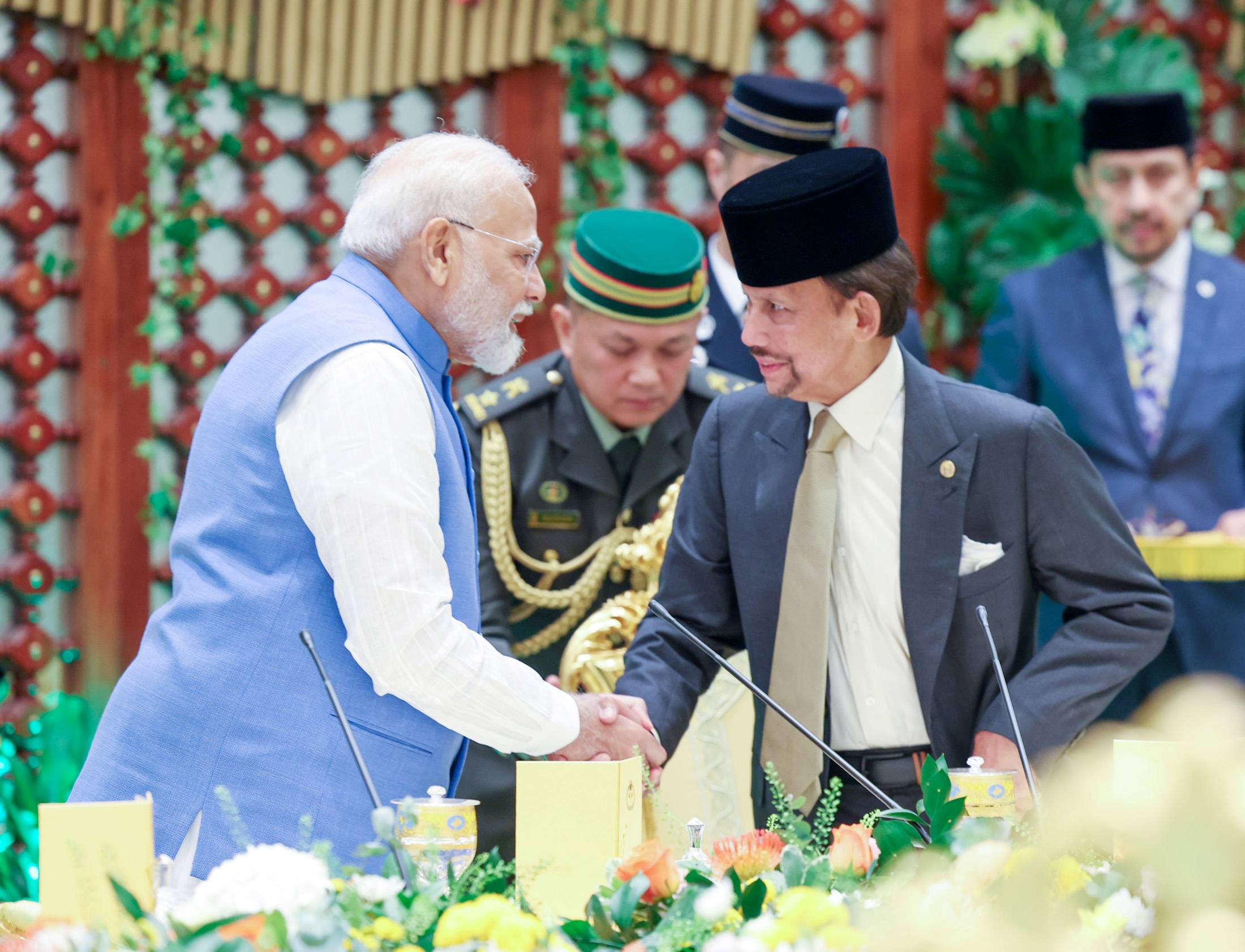
The 2018 space agreement with Brunei is an accomplishment for New Delhi in spite of Chinese assertiveness in the region. Another announcement of the space agreement was expected at the present meeting but the two leaders discussed signing a space cooperation agreement, signifying a shared interest in moving forward with technological cooperation in space exploration and satellite technology.
Earlier Brunei-India bilateral trade floated around $500 million but declined in recent years, as India began to import Russian oil and gave up oil imports from Brunei and also India currently imports a significant portion of its long-term LNG supplies from Qatar. During the meeting of leaders, India and Brunei agreed to engage in the area of the long-term supply of LNG to India.
To expand trade ties and commercial links they have agreed to explore new avenues for cooperation in the investment sector. They also distinguished the importance of food security and agreed to enhance cooperation in agriculture and the food supply chain. During their talks, both leaders also called for strong ties in capacity building, connectivity, culture, finance, health and pharmaceuticals, technology and tourism.
The visit to Brunei, which is positioned strategically located on the island of Borneo in Southeast Asia in the centre of the Indo-Pacific, surrounded by Indonesia, Malaysia, Singapore, Philippines and Vietnam, is important for India's AEP. A naval station of India in Brunei would be a great achievement for India allowing the outreach of New Delhi to deepen its regional footprint with maritime states in Indo-Pacific to counter China.
Take Aways from Singapore visit
In the last 15 years, India and Singapore ties have been in an upward trend across a range of areas and now New Delhi and Singapore promoted them to a 'comprehensive strategic partnership' an upgrade of the existing Comprehensive Economic Cooperation Agreement (CECA), which had removed tariffs on 81% of Singapore exports to India.
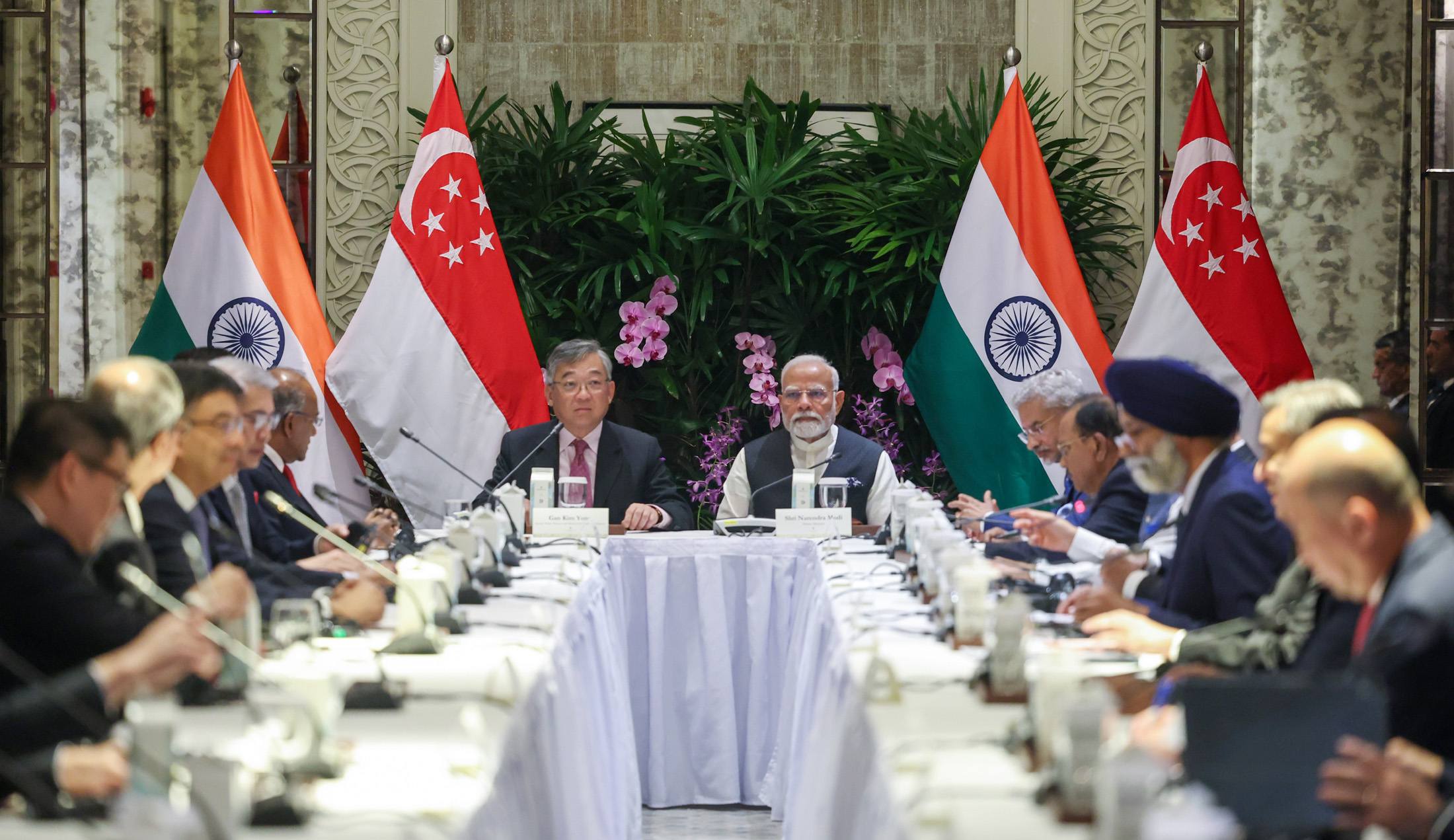
Now, the two countries signed four key Memorandums of Understanding (MoU) in the fields of digital technologies, semiconductors, health cooperation, educational cooperation and skill development. In addition, both the leaders extensively evaluated existing areas of advanced manufacturing, artificial intelligence, connectivity, cyber-security, defence and security, education, fintech, green corridor projects, knowledge partnership, maritime domain awareness, new technology domains, people-to-people ties, science and technology and sustainability.
As a part of a new frontier of cooperation, the two nations are engaging in the semiconductor technologies and health sector. As Singapore is an integral part of the worldwide semiconductor supply chain, accounting for 10 per cent of all chips produced globally and about 20 per cent of the global production of semiconductor manufacturing equipment, the MoU on the semiconductor ecosystem partnership holds promise for expanding India's semiconductors market, which India expects to be $63 billion by 2026.
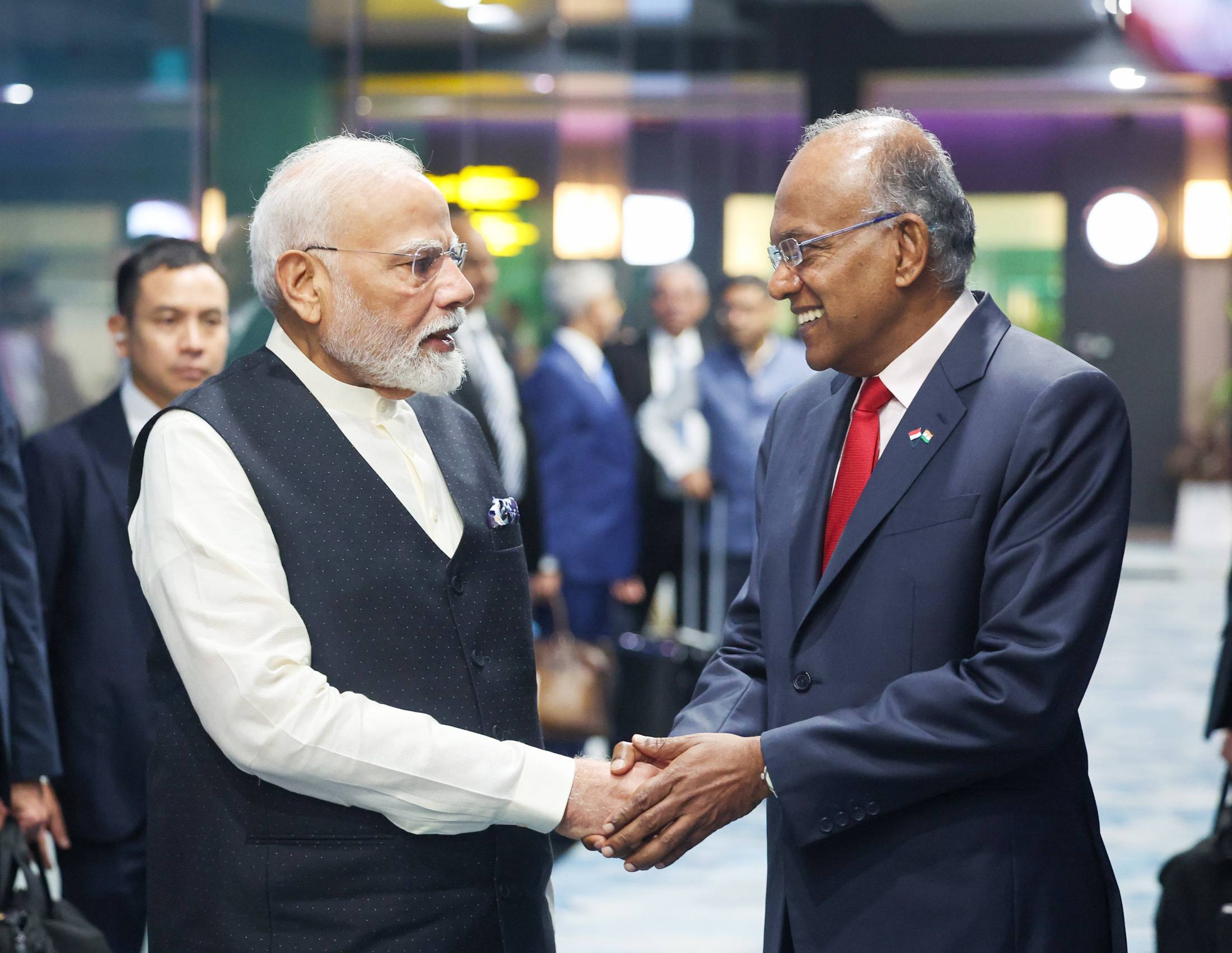
It will also facilitate Singapore's investments in India and boost the industry's drive to compete in future with countries like Taiwan by moving ahead with the construction of 3 semiconductor plants worth over $15 billion by firms including Tata Group and CG Power.
MoU on Health and Medicine aims to promote closer cooperation in the areas of human resource development in the healthcare and pharmaceutical sectors. It will promote Indian healthcare professionals in Singapore. The MoU on digital technologies will help facilitate close cooperation in the areas of cyber-security, 5G, super-computing, quantum computing, and artificial intelligence. The MoU on educational cooperation and Skills development promotes cooperation in the areas of technical and vocational education.
Singapore has invested nearly $160 billion in India in the last 24 years. To boost up and attract more investments PM Modi congregated with CEOs of Blackstone Singapore, Temasek Holdings, Sembcorp Industries Limited, CapitaLand Investment, ST Telemedia Global Data Centers, Singapore Airways and invited them to invest in India in aviation, energy, and skill development.
Act East Policy and Indo-Pacific Strategy
Bangladesh and Myanmar are central to the AEP with various connectivity projects aimed to link India's northeastern region with South East Asia passing through the two countries. As they struggle with disturbances and political strife, it is necessary for New Delhi to revive its ties with ASEAN countries like Brunei and particularly with Singapore, an innate partner for India's efforts to deepen ties with ASEAN, with its strategic location at the intersection of the east-west shipping route, one of the world's most vital trade routes. Singapore is also vital for India for cooperation in multilateral forums like the ASEAN-India Summit, the East Asia Summit (EAS), and the ASEAN Regional Forum (ARF).
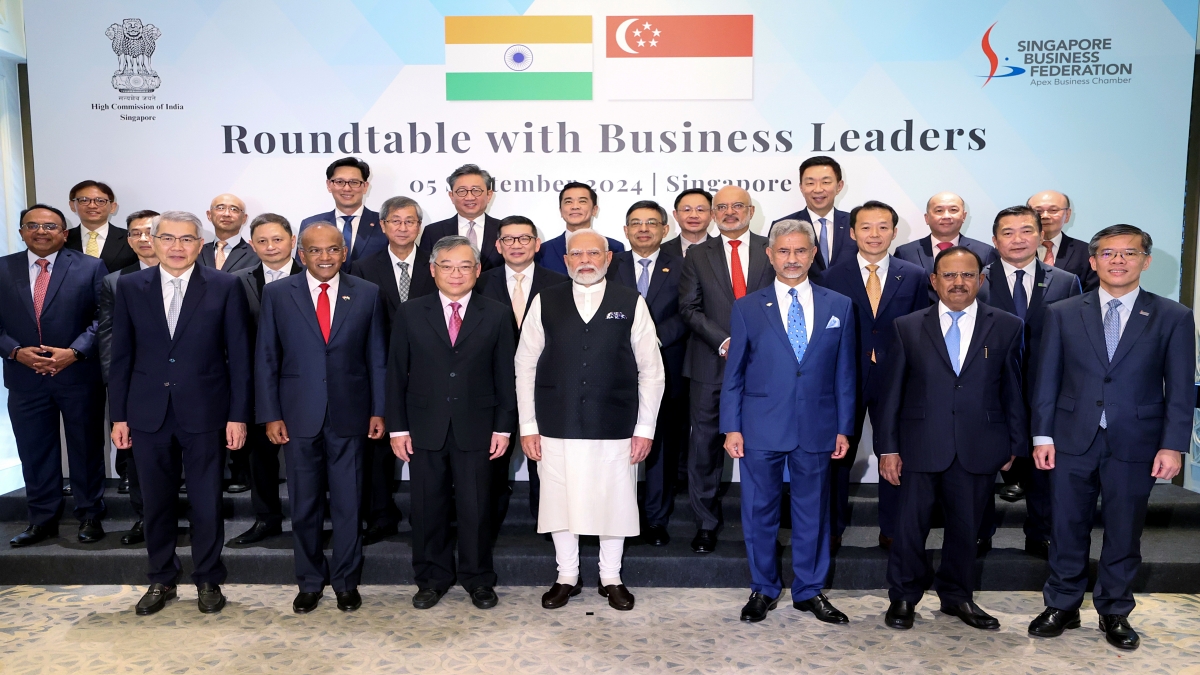
India is not a significant economic or military player east of the Malacca Straits. Mentioning the strategic significance of the region, Prime Minister Modi explicated that "to the east, Malacca Strait and South China Sea connect India to the Pacific and to most of India’s major strategic partners - the ASEAN, Japan, Korea, China and the Americas." Accelerating New Delhi's diplomatic, economic, and military integration with Brunei and Singapore will support New Delhi's venture to preserve a stable balance of power in the Indo-Pacific.
Singapore is India's largest trading partner in the ASEAN region, whereas Brunei has the lowest trading figures with India. India has to improve economic integration, by reviewing the 2009 ASEAN India Trade in Goods Agreement (AITIGA), especially in terms of reducing tariffs.
According to "State of Southeast Asia" 2024 Survey Report, India's economic and political-strategic influence was ranked very low among ASEAN’s dialogue partners. Amitendu Palit, Senior Research Fellow in the Institute of South Asian Studies (ISAS) at the National University of Singapore (NUS), expected that "the visit may give more importance to the Indo-Pacific Economic Framework for Prosperity (IPEF), which India, Singapore and Brunei are a part of." It looks as if no such steps were taken.
Conclusion
By and large, PM Modi's engagement with Brunei and Singapore reveals New Delhi’s focus on Southeast Asia and its goals of the AEP aligned with broader goals of shaping a stable and accommodating Indo-Pacific landscape with regional alliances to counterbalance China's growing economic and military influence in the region.
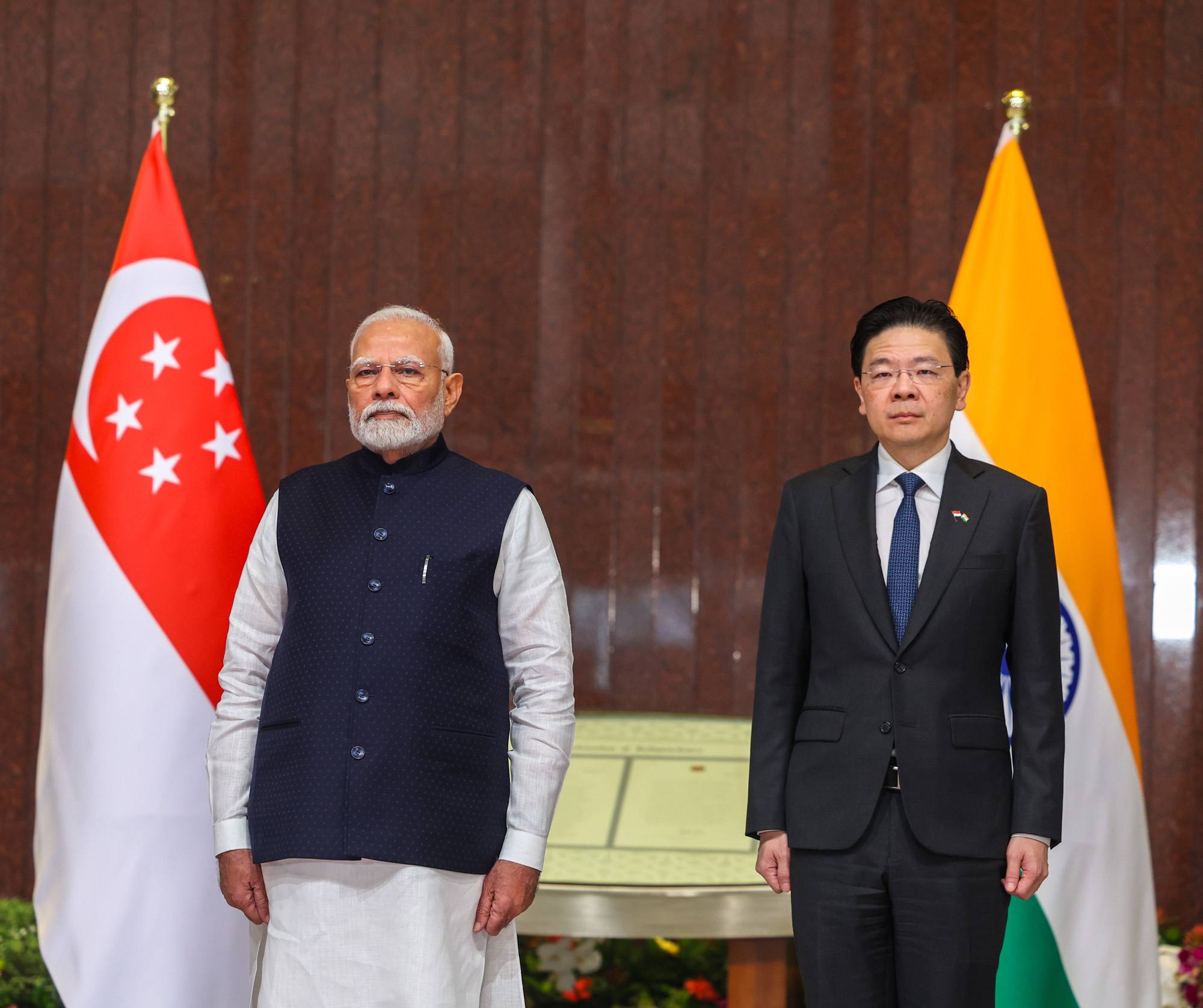
India’s continued liaison with Brunei and Singapore in steering the complex and intricate power equilibrium of the region is essential for AEP in future and in securing its continuing interests in the Indo-Pacific as a regional power player. In addition to becoming a global power and principal player in the Global South, a more vigorous AEP is required to ascertain a larger presence in the Indo-Pacific.
(Disclaimer: The opinions expressed in this article are those of the writer. The facts and opinions expressed here do not reflect the views of ETV Bharat)
